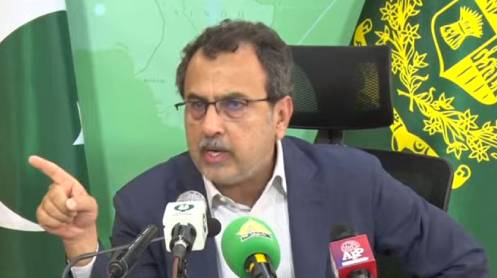Karachi (TV Report) – Federal Minister for Energy, Awais Laghari, acknowledged the delays and difficulties in delivering on the promises of free electricity made by Maryam Nawaz and Bilawal Bhutto. While claiming efforts to reduce electricity prices for the public, Laghari stated that significant rate reductions would be made before the end of the government’s term. He admitted that fulfilling promises of free electricity will take more time. Areas with high electricity theft are experiencing increased load shedding, and investigations are underway regarding the addition of extra units in electricity bills. Laghari revealed that departmental officials often teach people how to steal electricity, although some thefts occur forcibly. Plans are in place to privatize distribution companies within one to two years, but around 20 million people using up to 200 units of electricity are currently paying much less than the actual cost. Senior actor Rashid Mehmood’s electricity bill reflects his actual consumption.
Speaking on Geo’s program “Capital Talk” with host Hamid Mir, Laghari detailed the ongoing investigation into extra units being added to electricity bills and proposed that NEPRA should handle the matter. If bills exceeding 200 units are incorrect, the rate for those consumers will be adjusted to below 200 units. He noted that even the poorest individuals might have exceeded 200 units due to the severe heatwave last month. The minister stressed that electricity theft, often facilitated by department staff, is a major issue. Staff members sometimes accept bribes from those stealing electricity. Privatizing distribution companies is seen as a solution, and shifting consumers using up to 200 units to solar power could alleviate the burden on other consumers. The government incurs a cost of 35 rupees per unit of electricity without taxes.
Laghari highlighted that consumers using over 200 units are also shouldering the inefficiencies of distribution companies, which are losing 600 billion rupees. Relief of 150 billion rupees has been provided to the industry due to reduced electricity demand. This year, 55% of electricity has been generated through renewable sources, and 75% from local raw materials. Efforts are ongoing to switch power plants from imported coal to local coal, potentially saving 300 billion rupees. Furnace oil plants will be phased out during their tenure. Rashid Mehmood’s electricity bill is based on his actual consumption.
The minister reaffirmed the commitment to reducing electricity prices before the end of their term. He pointed out that Nawaz Sharif’s previous government had eliminated load shedding. While respecting Bilawal Bhutto’s promise of 300 units of free electricity, fulfilling promises made by Maryam Nawaz and Bilawal Bhutto regarding free electricity will take more time.
Laghari asserted that electricity theft cannot be curbed until distribution companies are privatized, expressing his opposition to government involvement in any business, including electricity. Provincial law enforcement support is crucial to tackle theft. Linemen are often assaulted when attempting to remove illegal connections. Regarding the Khyber Pakhtunkhwa government, Laghari noted that issues are resolved where targets are met, with Punjab experiencing less theft and line losses, resulting in lower load shedding. Punjab recovers 3 trillion out of 3.1 trillion rupees. In high-theft areas, supplying power raises the question of who will pay the bill. Ali Amin Gandapur has never officially suggested ending load shedding by covering losses from their account.
Laghari mentioned that load shedding is more frequent in theft-prone areas, with K-Electric also enforcing load shedding in such areas of Karachi. Consumers paying their bills end up covering the costs of those stealing electricity.







